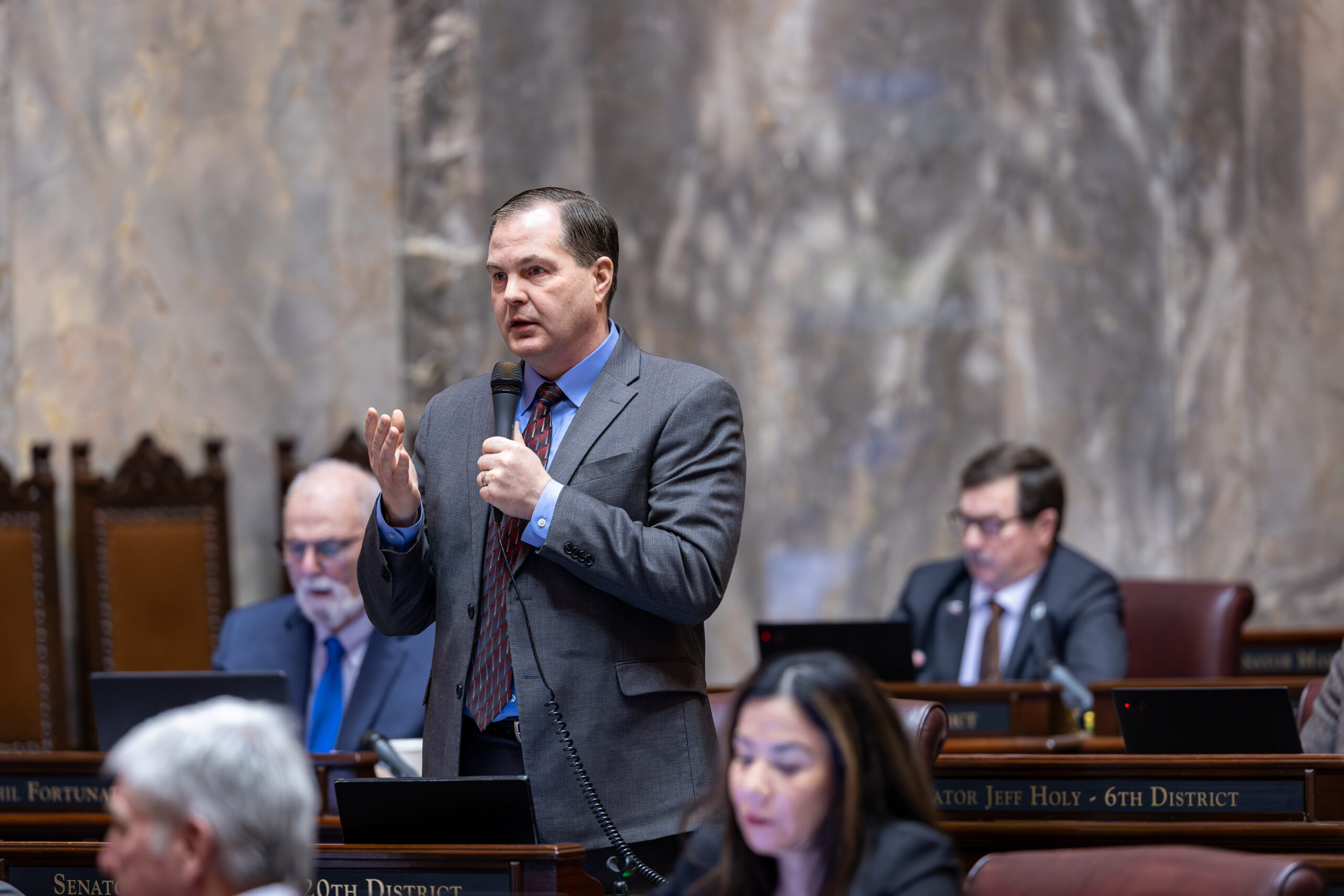LISTEN
This transcript has been edited for clarity and readability. While it reflects the substance and intent of the conversation, it is not a word-for-word reproduction of the original audio.
️ The Elephant in the Dome
Episode: Taxed to the Brink
Host: Tracy Ellis
Guest: Senate Republican Leader John Braun
Tracy Ellis:
Welcome to The Elephant in the Dome, the official podcast of the Washington State Senate Republican Caucus. I’m Tracy Ellis, joined by Senate Republican Leader John Braun.
John Braun:
The budget outlook for Washington State is not good. Right now, we’re already out of balance. If we keep going down this path, financial experts say we won’t have enough money to pay our bills.
Tracy:
Let’s talk about where the budget stands and what needs to happen to get it back in the black.
Braun:
We debated this during the session. We’re not in a recession—state revenue is still growing. But because of runaway spending by the Democratic majority, we had a deficit. Instead of tightening spending, they raised taxes: $9 billion at the state level and another $3 billion locally.
Now, just six months later, the latest revenue forecast shows we’re nearly $1 billion underwater. That’s unprecedented.
Tracy:
Are businesses feeling the impact of these new taxes?
Braun:
Absolutely. One example is housing starts—they’re way down. Builders are pulling out due to our regulatory and tax environment. That hurts both housing affordability and state revenue.
Tracy:
The idea behind raising taxes was to maintain services. Are we seeing improvements?
Braun:
No. Despite more money, we’re not seeing better outcomes—especially in areas like housing, homelessness, health care, and services for children. In fact, we’re seeing failures at state agencies that have led to harm and costly lawsuits.
Tracy:
Let’s talk about those lawsuits. Tort payouts have skyrocketed.
Braun:
Yes. When I first came to Olympia, annual tort payouts were around $100 million. Now, they’re hitting $500 million to $1 billion per year. The Democrats didn’t even budget for it this year. Now they’re scrambling to cover a $600 million shortfall and projecting up to $3.3 billion in tort liability over the next four years.
Tracy:
That’s tragic—and expensive.
Braun:
Exactly. Most of these cases involve children. People are getting hurt, and the state is being held accountable. But there’s little media coverage and no urgency from the Democratic majority.
Tracy:
Meanwhile, agencies are asking for more money—like the Superintendent of Public Instruction requesting additional funds for math education.
Braun:
I don’t disagree with the need to improve math skills. But we already spend $35 billion on K-12 education. If $10 million more will help, fine—but let’s not ignore the failure to deliver results with the billions we’re already spending.
Tracy:
Are taxpayers getting value for their money?
Braun:
People I talk to are frustrated. Schools are struggling, housing is scarce, homelessness is rampant. And now, new taxes—like sales tax on services and increased business taxes—are driving up costs. It’s a downward spiral.
Tracy:
Do you think Democrats will propose more taxes in the upcoming session?
Braun:
I hope not. But based on what I’m hearing, many are already talking about expanding existing taxes. They seem committed to a tax-first strategy.
Tracy:
This will be Governor Bob Ferguson’s first budget. What are the options—more revenue or cuts?
Braun:
They missed their best chance to find savings during the biennial budget process. We offered a plan that protected services without raising taxes. They rejected it. Now, finding cuts without hurting people will be much harder.
Tracy:
Is there a way to increase revenue without raising taxes?
Braun:
Yes—by growing the economy. Washington used to have a strong, competitive business climate. But now, we’re becoming one of the most expensive states to live and do business. That’s driving businesses away and slowing growth.
Tracy:
Any obvious areas to cut?
Braun:
There’s no magic fix. We need to stop adding new expenses and bend the cost curve over time. That means making tough decisions and focusing on what really matters.
Tracy:
Thanks for joining us, Senator Braun.
Braun:
Always a pleasure.







